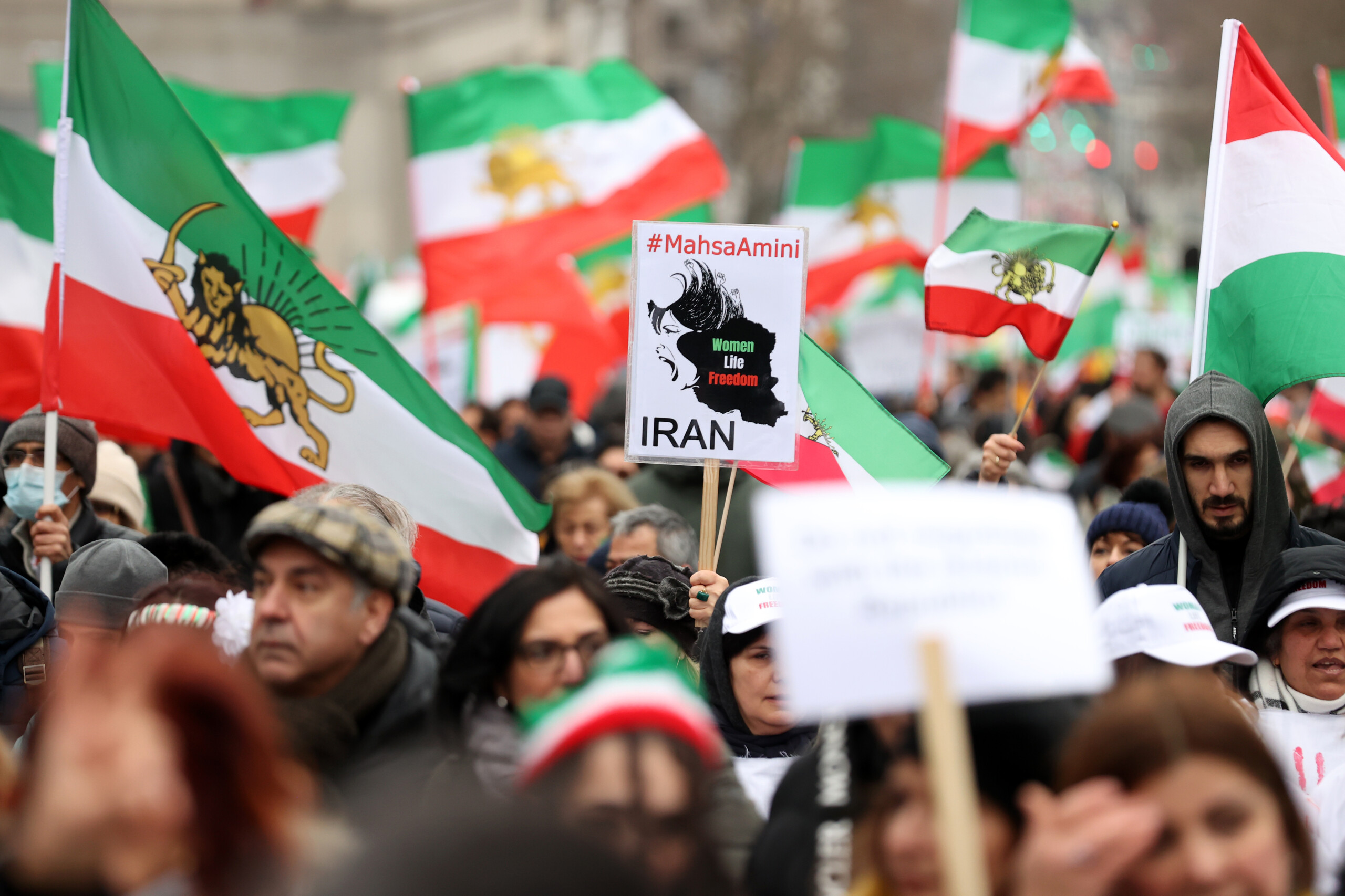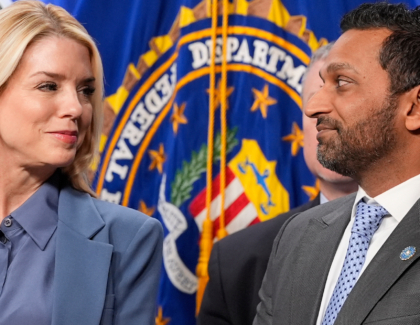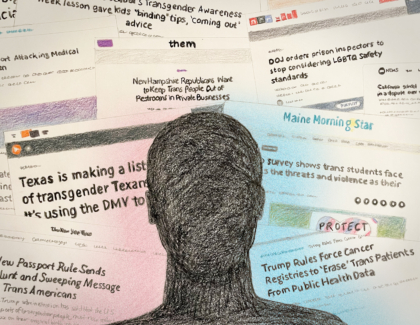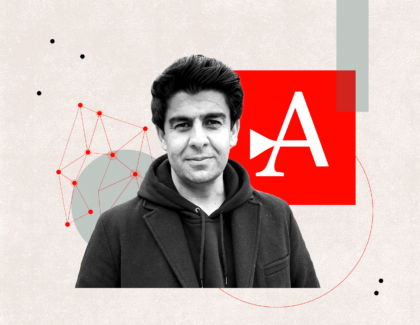Sign up for the daily CJR newsletter.
On Friday, a group of men stabbed Pouria Zeraati, an anchor on the UK-based Persian-language news network Iran International, outside his home in London. Iran International is formally banned inside Iran, where the ruling regime has branded it a “terrorist organization.” Iranian officials denied any involvement in the attack, but critics of the regime quickly suspected otherwise. Police in London said that while a number of explanations were possible, a counterterror unit was involved in the investigation given “the victim’s occupation as a journalist at a Persian-language media organization based in the UK, coupled with the fact that there has been a number of threats directed towards this group of journalists in recent times.”
Adam Baillie, a spokesperson for Iran International, described the stabbing of Zeraati as a “great shock,” noting that it was the first incident of its kind to hit the network. As the police statement indicated, though, this might not be for want of trying. Baillie told the BBC that Iran International staffers have faced increased threats emanating from Iran over the past year and a half or so, not least aggressive official questioning of relatives living in the country. In November 2022, the network said that police in London had warned two of its journalists that they faced serious threats to their safety; in February of last year, police arrested an Austrian national on suspicion of conducting reconnaissance outside Iran International’s London offices that was “likely to be useful to a person committing or preparing an act of terrorism.” (The suspect later said in court that he had merely been admiring the architecture; he was convicted and sentenced to three and a half years in prison.) Shortly after that arrest was made, Iran International said that it was relocating to Washington, DC, on the advice of police, citing threats from the Iranian state. (The network moved back to London in September.)
In December, the British broadcaster ITV published an extraordinary story laying bare the danger that Iran International had faced, reporting that Iranian spies under the command of the Islamic Revolutionary Guard Corps, a powerful arm of the state, offered a people smuggler two hundred thousand dollars to assassinate staffers from the network; their plan was initially to detonate a car bomb outside its offices, before the organizers instead proposed stabbing two anchors—Sima Sabet and Fardad Farahzad—at their homes. ITV learned of the plot—code-named “The Wedding” (with Sabet as “the bride” and Farahzad as “the groom”)—after the smuggler, who turned out to be a double agent, provided reporters with evidence. (ITV said that multiple officials corroborated his account; Iran denied the story and dismissively likened it to something out of James Bond.) After the story aired, the British government summoned an Iranian envoy. In January, it slapped sanctions on the unit of the IRGC implicated in the report, as well as individuals connected to it.
The story offered an uncommonly explicit window into a much more broadly alleged practice—agents of the Iranian state contracting organized criminals from other countries to target perceived enemies overseas—that, ITV noted, seems aimed “at exploiting access to firearms, while offering Tehran a chance of plausible deniability.” Baillie told the BBC over the weekend that the IRGC has leveled threats against Iran International via proxies, without leaving a paper trail. (“No one’s going to call up from the IRGC and go ‘Hey, it’s us,’” he said.) But a broader pattern seems clear, and goes far beyond Iran International: police in London claim that at least fifteen plots to kidnap or kill UK-based critics of the Iranian regime have been foiled since 2022. And the pattern goes beyond Britain, too. Perhaps most memorably, the author Salman Rushdie was stabbed onstage at a literary festival in New York State in 2022. Iran has, again, denied involvement in that attack—but officials have openly celebrated it. And the regime never officially revoked the fatwa it issued in 1989 calling for Rushdie’s assassination in response to supposed blasphemy in his book The Satanic Verses.
In some ways, the pattern appears to speak to the broader modern globalization of state-backed threats and violence—not a new problem (as the long-term threats against Rushdie indicate), but one that seems to be accelerating in an age of porous borders. (Just yesterday, for example, seven IRGC officers were killed in an apparent Israeli air strike in Damascus, the capital of Syria.) For members of the press and other dissidents against repressive regimes, the acceleration in cross-border threats has been particularly acute as the world’s autocrats have grown more brazen, their attacks on the press sharper, their spyware more sophisticated.
In recent months, I’ve written about the threats facing exiled journalists originally from Russia and Azerbaijan; late last year, the US nonprofit Freedom House said in a report that at least twenty-six governments engaged in the “escalating transnational repression” of journalists between 2014 and 2023. In doing so, such regimes have increasingly blurred the lines between domestic danger and safety abroad for members of the press. In Iran’s case, this dynamic has only intensified since the fall of 2022—when a young woman who failed to cover her head as mandated by law was arrested and died in police custody, and the country exploded in protest.
The regime’s hostility to independent journalists—both at home and overseas—predates this moment, of course. For years, Reporters Without Borders (RSF) has ranked Iran among the very worst countries on earth to be a journalist; between 2014 and 2016, the country jailed the Washington Post reporter Jason Rezaian, whose case became a cause célèbre among international press freedom watchers. In 2021, Iranian officials and agents allegedly surveilled the New York City home of Masih Alinejad—an Iranian American journalist, broadcaster, and activist—with a view, US prosecutors suggested, to kidnapping her via speedboat and rendering her to Iran by way of Venezuela. In the summer of 2022, a man allegedly lurked outside Alinejad’s home with a loaded assault rifle and at one point tried to enter; prosecutors have charged four individuals linked to an Eastern European criminal network in that case, and said the plot was coordinated from inside Iran.
But since the death of Mahsa Amini—the young woman jailed for not wearing a hijab—and the resultant protests that shook the regime, its attacks on the press have only gotten worse. In the immediate aftermath, organizations including Iran International and BBC Persian, which is also headquartered in the UK, were sanctioned for supposed complicity in destabilizing the regime; spokespeople for both outlets (both of which covered the protests) have since reported a marked uptick in threats to their staff. Employees at BBC Persian have said that they, too, have family members who have been questioned inside Iran, and have also reported receiving threats of death and sexual violence; at least one told The Guardian that the situation was akin to being trapped in a war zone. In the wake of protests, a United Nations body established a fact-finding mission to investigate human rights abuses. Last month, it reported, among other conclusions, that “State authorities harassed, threatened and intimidated journalists and other media employees working outside the country”—not only at Iran International and the BBC, but also at Voice of America, the German broadcaster Deutsche Welle, and IranWire.
Inside Iran, meanwhile, the protests quickly led to the mass arrests of reporters—as my colleague Feven Merid wrote at the time, at least twenty-eight journalists were detained in the first few weeks, including Niloufar Hamedi and Elahe Mohammed, two female reporters who were among the first to cover Amini’s case. At the time and in the months since, officials have blacked out the internet and shuttered or blocked various publications. On the anniversary of the start of the protests, RSF pegged the number of journalists arrested since at seventy-nine; when the Committee to Protect Journalists conducted its annual census of jailed journalists in early December, at least seventeen were still in prison in Iran, tying it with Israel as the sixth most prolific jailer of journalists globally. In January, Hamedi and Mohammed were released on bail after being handed lengthy sentences, and were photographed smiling and flashing victory signs. The next day, they were charged with failing to properly cover their heads.
As the case of Hamedi and Mohammed might indicate, at least some journalists remain willing to pursue sensitive work inside Iran despite the increasingly restrictive climate for it. “As the state jockeys for stamping out every hint of heterogeneity in the press corps, a chorus of young, educated and smart reporters has kept the flames of ethical journalism alive, defying the myth that Iran’s news industry has gone extinct,” Kourosh Ziabari, an Iranian journalist (and student at Columbia Journalism School), wrote for New Lines in January. “This glimmer of hope is offered by the tiny sliver of nonpartisan journalists venturing to expose corruption, malfeasance and social ills through the handful of progressive newspapers and online publications that haven’t yet been suffocated.” And independent journalism has made its way into Iran from outside, too. According to various surveys, Iran International is widely watched in the country, with viewers using VPNs and other technical tricks to circumvent the official ban. Late last year, RSF helped BBC Persian create a “mirror site” that Iran-based internet users can access without a VPN.
In this informational sense, the porousness of borders can help journalists to fight repressive regimes. As we have seen, though, in other ways it is helping the repressive regimes—and it’s not clear that the democratic world has yet caught up to that reality, at least not uniformly. Semafor’s Ben Smith suggested recently that attacks on critics of Iran remain curiously undercovered in Western media. Last week, in a column for Iran International following the stabbing of Zeraati, Alinejad accused police in London of burying their heads in the sand, contrasting their “negligence” with “the protection I receive in the US, where threats are taken with utmost seriousness.” In the past, bosses at Iran International have praised British police, and officials in that country have telegraphed strong rhetorical support for Iranian journalists based there. Following the stabbing, though, Alicia Kearns, a Conservative lawmaker who chairs a foreign affairs committee in Britain’s Parliament, said she was “unconvinced that we and our allies have clear strategies to protect people in our countries” from the Iranian regime.
Happily, Zeraati survived the stabbing. The next day, he posted a photo from his hospital bed flashing a victory sign; yesterday, he was discharged to a safe location, where he is recovering under police protection. The circumstances of the stabbing remain unclear, but Zeraati said that “good progress has been made” in the investigation and that the suspects “purposefully planned” the attack. For his part, Baillie, the Iran International spokesperson, insisted that the incident would not deter the network from its work. “People are very committed to the idea of a free independent news service for Iran,” he said.
Other notable stories:
- War in the Middle East is leading the news cycle again this morning: first, Israeli strikes killed the Iranian military personnel in Syria, exacerbating fears of a wider regional conflict; then, an Israeli strike in Gaza killed seven aid workers with World Central Kitchen, a humanitarian group founded by the celebrity chef José Andrés. (Israeli prime minister Benjamin Netanyahu described the strike this morning as a “tragic case of our forces unintentionally hitting innocent people.”) Meanwhile, an Israeli strike on a hospital compound in Gaza wounded seven journalists. (Israel claimed to be targeting a militant command center there.) And Israel’s parliament passed a law allowing the country’s government to ban foreign media networks that it deems a threat to national security—a law Netanyahu quickly pledged to use to shutter Al Jazeera’s operations in the country. (I wrote about the push to ban Al Jazeera back in October.)
- For the New York Times, Elizabeth Williamson profiled a growing cadre of lawyers who are turning to defamation law as a means to push back the rising tide of political disinformation. “Before the Trump era and the explosion of social media, such cases were virtually nonexistent,” Williamson writes, but “in the past few years, more than a dozen high-profile defamation cases have made their way through the courts”—mostly brought against defendants on the right but sometimes brought by right-wing figures against major news organizations. Ian Bassin, the founder of Protect Democracy, a nonprofit, described the information environment as being “like the Wild West,” and defamation law as “one of the most effective and only strategies for dealing with” out-and-out lies.
- Vanity Fair’s Joe Pompeo spoke with John Avlon, a former editor in chief of the Daily Beast turned CNN anchor and commentator, who recently quit his job at the network to run as a Democrat for a US House seat in a swing district on Long Island. “It’s not that I don’t fully appreciate the tension that needs to exist between journalism and politics, but it also always seemed to me, commonsensically, two sides of the same coin,” Avlon said. “We should be in it for the same reasons. You care about civics, you care about civic debates, you care about finding solutions to problems, you want accountability.” (Back in 2022, I compiled an encyclopedia of TV anchors who have run for public office.)
- Also for Vanity Fair, Adrian Carrasquillo reports that President Biden will sit down for an interview this week with Enrique Acevedo, of Univision—a notable booking for the network after many Democrats blasted it for what they saw as a softball interview that Acevedo did with Donald Trump last year. Per Carrasquillo, a top Biden aide held a “high-stakes” meeting with a Univision executive in January, leading to a smoothing of relations between the network and the administration. This week’s interview will give Biden a chance “to reintroduce himself to Latino voters,” Carrasquillo notes.
- And—after Dani Alves, a Brazilian soccer player who was recently convicted of rape, was released from prison in Spain last week after posting a million euros in bail money—rumors swirled in the soccer world as to who may have paid up on his behalf. Now Marisa Martín Blázquez, a Spanish journalist, has claimed that a well-known Brazilian magazine paid bail for Alves, apparently in exchange for an interview. The Spanish sports newspaper Marca has more details in English.
ICYMI: Third Party in the USA
Has America ever needed a media defender more than now? Help us by joining CJR today.







